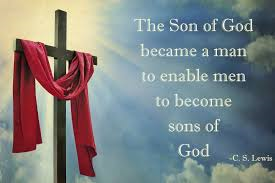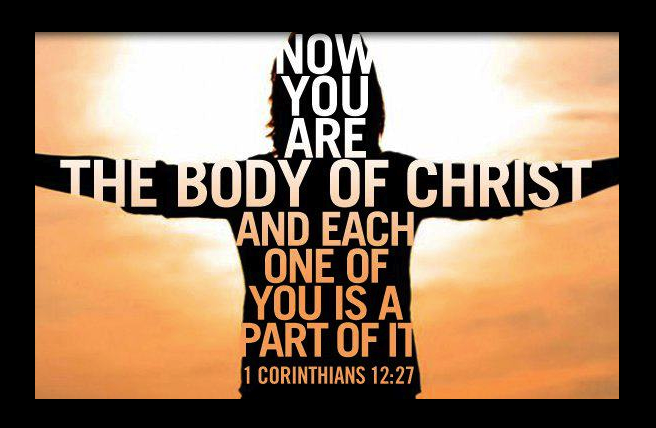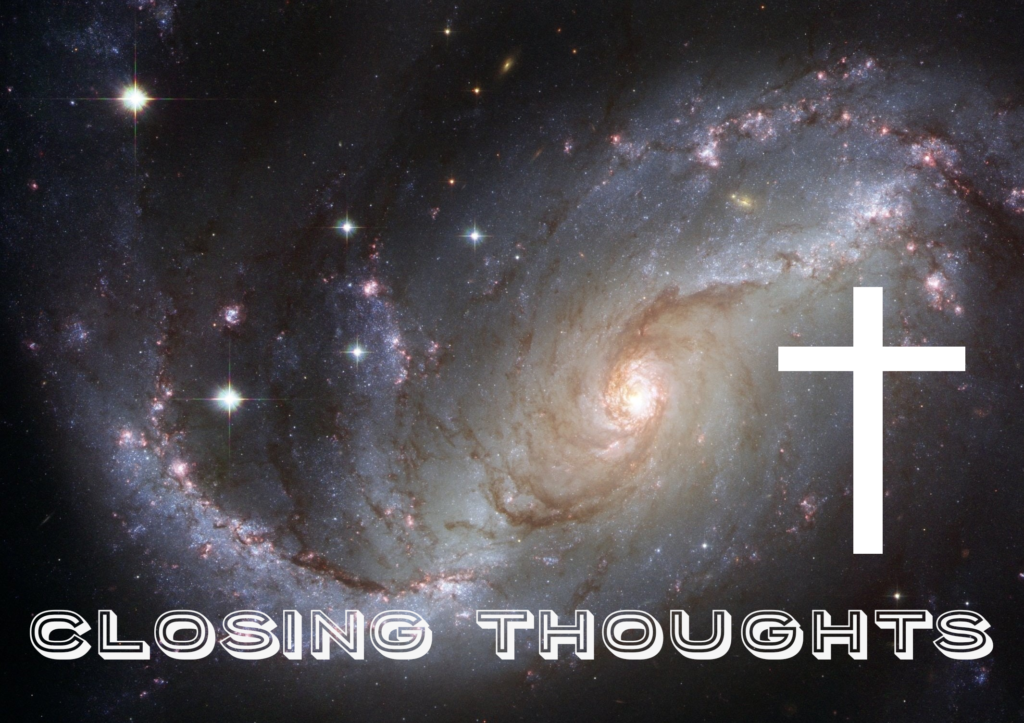Although by no means comprehensive in scope, I have now explored the main topics that I would consider central to the discussion of God’s ultimate plan for reconciliation of all creation. Still there remain a few important subjects alluded to in other posts which will be addressed here briefly in a serial format beginning with the purpose of life.
Life On Earth… Test vs Process

Many would say that we are given life on earth primarily to have our character tested for the purpose of once and for all culling out the “bad eggs”, those who would ignore the Creator’s plan and stubbornly choose to follow Satan. And indeed it seems reasonable enough to conclude that some kind of final judgement of our actions and choices is in order. However it does not necessarily follow that this is life’s central purpose nor that it must culminate in a list of winners and losers.
Let’s start with three essential questions which quickly come to mind in regards to the proposition that life is essentially a test of loyalty: 1) Were we ever given a choice as to participation, perhaps in some preexistence where we were able to evaluate the risk/reward ratio? – 2) If not, then once finding ourselves immersed in the game were we afforded an “I don’t want to play” option having been made aware of the grave consequences tied to our potentially poor performance? – and 3) If neither of the above were offered, are we really comfortable with the image of a loving heavenly father engaging his children in an involuntary contest for the purpose of determining which of them would be worth keeping for the long haul, albeit perhaps with a genuinely sorrowful, yet “c’est la vie” kind of send-off to those found wanting? In other words are you okay with a God who would be willing to chock up to collateral damage many or most of his children as part of the cost of doing business?
As to question #1, the only group of people that I am aware of who believe in just such a pact being made in the “pre-existence” is the Mormons, but even they concede that the memory of their assent has been removed from their consciousness, thus greatly weakening any legal standing God could claim against a breach. After all, any contract made before adulthood, let alone before birth, would hardly hold up in a court of law. In regards to question #2, being offered a way out, I know of no one who would respond in the affirmative, although some have chosen to take matters into their own hands through the act of suicide. This “solution”, however, only hastens the unavoidable day of accountability which is the very thing they were seeking to evade. And lastly as to question #3, personally I would never have added children to my own family had I believed for one minute that the Source of their soul may one day remove them from His. On the other hand, Christians in general typically would offer what I consider to be a rather simplistic response to such an inquiry which attempts to justify God’s abandonment of his rebellious children by arguing that it is they who have rejected his offer of a virtual no-strings-attached debt cancellation, that is, Christ’s sacrifice on their behalf. I’ll have more to say regarding this last issue momentarily. (see blog posts: “Responsibility and Glory, HIS vs ours” and “No Cheap Grace: Reaping What You Sow” for a broader discussion of redemption and the “required” actions we “must” perform as part the process)
First I would like to consider the alternative proposition that life is first and foremost a process – a God-initiated, God-managed, God-underwritten process -designed specifically for the “revealing of the Sons of God”, including all of those created. Any requisite testing along the way is therein properly relegated to its secondary role, that of separating the wheat from the chaff within each individual soul. This testing comes in the form of daily choices whereby we must learn to trust in His providence by doing the right thing. The feedback, both positive and negative, built into the consequences of those choices are thereby seen to affect our growth, moving us toward an ever increasing unity with the Father and away from our own self-degradation.
This more inclusive viewpoint on God’s intentions regarding the testing of his children, while heretical to widely accepted doctrine, is actually consistent with the central theme of the Scriptures where God continually acts to redeem us in spite of ourselves. Even God’s final judgement of our deeds in the afterlife is rightly understood within this context as the quintessential corrective action given for our own good rather than as some kind of purely punitive sentencing. Thus assured of an unbroken heavenly connection throughout our life on earth and beyond, we are inspired to adopt that childlike perspective so fundamental to a healthy relationship with our Father – one open to, and even expectant of, His loving embrace.
Life is therefore better understood from a Biblical frame of reference to be a creative progression certain to redeem even the worst of sinners, including those whom from a human perspective would seem fit only for the garbage heap. It is this surety contained within the Gospel message that is capable of delivering a true rest for the soul which Jesus beckoned us to accept, when he said… “Come unto me those who are weary and heavy laden and I will give you rest”. Taking him at his word produces within us a sense of peace in the present and an eager anticipation of a wonder-full future. Rejecting the Gospel, on the other hand, insisting instead on the “proof of worthiness” route will only lead the honest to despair and the fool to denial.
Now circling back to question #3 above regarding God’s supposed eternal abandonment of the human “goats” who fail to respond to his offer, I would point you to Paul’s enlightening discussion of the nature of the sinful state in which we find ourselves. The Greek root of the word “sin” as translated in the English Bible refers to an archery term indicating the act of “missing the mark”. Paul’s references to sin throughout his writings may thereby be viewed in line with this allusion to our being participants in an archery contest in which we find ourselves incapable of hitting the mark. In several places he declares how ill equipped we are to even attempt engagement in such an event in the first place. It seems we have all been bound (“to disobedience”), practically blindfolded (seeing “through a glass darkly”), are aiming at targets set far beyond the range of our ability (“all have sinned and fallen short”), and as if all those handicaps were not enough to sink our ship, for all practical purposes he claims that we are dead, “in sin”.
Okay, sounds more like a futile exercise in humiliation than a legitimate contest scaled appropriately to the skills of its frail human participants, right? But that’s the point; the “contest” (The Law) was only put in place after the fall to expose our fallen nature and to demonstrate our inability to keep it. (See Romans 5:21,22) The contest is not supposed to be “won” (The Law upheld) until he has written it on our hearts. And this he will do in all of us as we are exposed to His steadfast love (both tough and compassionate) expressed in the Gospel message of Jesus Christ.
Of course this does not relieve man of his own responsibility or effort in all of this. In fact in spite of our handicaps, it is through our active participation in life as opposed to the commonly suggested totally passive role – as we “work out our salvation” – that we will be challenged, tested, and shaped into children fit for a King. But I speak here of the kind of effort that emerges naturally when we are first unconditionally loved for who we are – a child of God – not the kind extracted by a false god offering conditional acceptance for “good” performance. (again, see blog posts: “No Cheap Grace: Reaping What You Sow” and “Responsibility and Glory: HIS vs ours”)
So it would appear that what we find ourselves immersed in here on earth is, after all, a God-guided process with a bumper to bumper warranty for success. Accepting and embracing this Gospel reality can transform life’s experience from that of a precarious personal battlefield to an exciting cosmic adventure where together we are all being groomed under the Master Archer’s tutelage for that day when we will find ourselves (beginning with the “last”) effortlessly splitting arrow shafts in the center of the bull’s eye… “and sin shall be no more”.
In order to facilitate this monumental task, the message of the Gospel must be spread far and wide, and here we have yet another example of his desire for our active participation in the process. To this end, he has chosen “The Chosen”.
The Chosen… who & why

One of the most misunderstood and misapplied doctrines to be found within the pages of the Bible is that of the “Chosen Race”. All too often, and ever since its inception, this selective declaration has erroneously been taken to mean that everyone else must therefore be permanently “unchosen”, deemed ordinary or common by comparison, or worse yet – insignificant or inferior. From a Biblical perspective the concept of a chosen race originally had none of these negative connotations attached to it. The intent from the beginning, of choosing the nation of Israel, was to “bless all nations” primarily through a particular Seed of their ancestor Abraham.
In the Genesis account of the choosing event itself there is no description of superior attributes provided to explain why Abraham was selected as the progenitor of this special race. In fact, contrary to what many assume to be the case, Abraham’s supposed great faith in God is not even mentioned prior to the pronouncement of God’s unilateral covenant given to him; this was not a bilateral contract made with him as would be “The Law” introduced 430 years later to Moses. (see Gal 3: 15-18) And speaking of this later contract, the subsequent poor performance on the part of Abraham’s ancestors in holding up their end of the bargain proved them to be less deserving still of any elevated level of prominence.
So here we see that the act of choosing Abraham occurred fully at God’s discretion and initially had nothing to do with Abraham’s great faith nor any other qualities of good character he may or may not have possessed. (see Genesis 12: 2,3 NIV) Again, there is really no justification given for any glorification of Abraham nor especially of his progeny (save One). They were all simply the recipients of unmerited favor otherwise known as grace.
That being said, while no credit was conferred upon the Abrahamic race, there was certainly a benefit bestowed, as described by Paul in Romans 3:1,2 (NIV)… “What advantage is there in being a Jew, or what value is there in circumcision? Much in every way! First of all, the Jews have been entrusted with the very words of God.” In other words they were blessed with God’s immediate intimate presence through his intervention into history within the context of their national identity. But that special relationship was not meant to be for their benefit alone. They were to act as intermediaries through which the whole human race would be blessed, culminating in the coming of Jesus the Christ. Paul spells it out plainly when he refers to the chosen as firstfruits of the harvest, selected to act as ambassadors in the service of facilitating the inclusion of the rest.
Yet from the start, the nation of Israel misunderstood the very foundation of their standing before God. In their minds it was readily apparent that they had been set apart due to their superior ability to uphold the Law. Yet the prophets were continually reprimanding them for this self-righteous attitude and it was none other than their long awaited Messiah who would bring this issue to a head. In Matthew 23 Jesus railed on them repeatedly for their utter hypocrisy. Elsewhere he informed them that in order to truly fulfill the intent of the law, they must do far more than just live pious lives. They must truly love not only their neighbors but their enemies as well and must bear the abuse and suffering inherent in being a messenger of God’s grace to an angry, rebellious world.
Rather than working to soften their sense of moral superiority, however, this rebuke fell on deaf ears for the most part. Worse yet, Christ’s multiple references to superior faith observed among the Gentiles only served to further provoke their rage and hasten their subsequent attempts to kill him.
When in due time they did just that, then following the Resurrection the task of definitively driving this point home would be taken up by one of their own most zealous adherents – a Pharisee of Pharisees, that bane of the early Christian movement, Paul, who after figuratively getting knocked off his own high horse, proceeded to fully articulate the implications of the Gospel message through his many letters explaining how access to God’s favor had been made available to all people, including their “despicable” Samaritan neighbors and their oppressive Roman adversaries.
Paul furthermore recognized that the Jews by no means had the market cornered when it came to misinterpreting the nature of God’s election. He noted that the early Christian Gentiles were already showing signs of one-upmanship towards their circumcised Jewish brothers. And so immediately following his narrative on how Israel had lost its place of preeminence in God’s plan, Paul was compelled to inform the newly “grafted” gentile Christian community on the relative ease of re-grafting the original olive branches back into God’s family tree and pruning them out should they lose sight of their equally unmerited inclusion or their proper role as servants.
And therein lies the essence of the whole matter of election. It is intrinsically a service oriented calling. Anyone who thinks of it as a means of elevating one’s self or group above another into some sort of elitist caste system, has missed the point entirely. We would all do well to remember Christ’s admonition to the apostles who were caught vying for top position in his kingdom. He said that the greatest among you must be the servant of all. (see Matthew 23:11, Luke 9:48 & 22:26 NIV)
Thus it becomes apparent that we are all in this together and we will all get through it together. No one is worth more or less than their neighbor – each one is to be brought into the fold in God’s good timing, whereby the first (the chosen) will be last and the last will be first. Thus the overtly indiscreet “blue collar” type of sinner may very well see the inside of the Pearly Gates before the more restrained, perhaps hypocritical “white collar” type does — i.e. the reckless young Prodigal son before the well behaved older one.
So it would appear that in our human proclivity for sin, there is but one disease with a variety of symptoms, from which none are immune.
Unity of Sin: white collar vs blue collar… we’re all in this together

White Collar

Blue Collar
– we’re all in this together
“For whoever keeps the whole law yet stumbles at just one point is guilty of breaking all of it.” (James 2:10 NIV) How can this be? Certainly it is much worse to murder someone than it is to steal a piece of candy, right? Of course from an earthly experiential perspective it is, especially from the viewpoint of the victim. While Jesus did say that there is a certain equivalency between anger and murder, and between lust and adultery, I would posit that we all know there to be in actual practice a qualitative difference. Were we to ask the wife of the adulterous husband if her heartache would have been as intense from the act-desired as it was from the act-committed, we can be certain of her response. Likewise her children would suffer immeasurably more harm from the actual murder of their father than from their mother’s death-wish towards him, having once learned of his grievous indiscretion.
Obviously at a human level in an orderly society there needs to be different degrees of consequences in proportion to the level of transgression. Regardless of how traumatized a person may have been, in their childhood or thereafter, they must be held to full account, to reap just as they have sown. However, from God’s perspective, considering all the complexities of the human condition, one man’s bout of rage may essentially be deemed equivalent to another man’s act of murder. And an equivalent penalty may be assessed to each of them on the Judgement Day when critical review be made of all their life’s choices and of all their life’s influences. Jesus put it this way: “But the one who does not know and does things deserving punishment will be beaten with few blows. From everyone who has been given much, much will be demanded; and from the one who has been entrusted with much, much more will be asked.” (Luke 12:48 NIV)
To bring it closer to home, when I consider my own “wild” years of virtual evil in an atheistic mindset (see blog post “A Brief Autobiography: driven to know”)– call it fantasized evil – as well as my actual commissions of white collar “minor” offenses, having been raised by very spiritual, loving, lifelong Christian missionaries to Japan and America, I do reckon my bad behavior to be essentially equivalent in God’s eyes to the obviously major offenses of the likes of Jeffery Dommer, Adolf Hitler, Charles Manson, etc. when their life contexts are taken into account. I do not say this in jest nor for shock value. Put me in their shoes and I have no doubt my deeds could easily have followed in the same tracks as theirs. Quite literally, “but for the grace of God, there go I”.
Recognizing this to be true and allowing its implications to permeate my consciousness with the knowledge that God’s love is bigger than all of our transgressions, whether of the white collar or blue collar variety, encourages me to be transparent to myself as well as to others, thereby retaining a position of humility and compassion in my outreach to those in need, even to those not yet aware of that need. It is this kind of fellowship that should inform the unity of “believers” in building at long last that ultimate consummation of God’s creation, the “Body of Christ”.
Body of Christ… work it out…now or later

The individual encounter with the Gospel message of unconditional love is a life-changing, healing and invigorating experience for the individual, allowing a perpetual residence in the moment at rest in His loving grace. It has delivered deep satisfaction to my mind (it makes sense), to my heart (it feels great), and to my soul (sent soaring into the heavens) — a veritable spiritual feast that is “gourmet delicious”, to borrow my dad’s expression. But its full impact on the world can only be realized within the framework of community or as stated in the Greek, Koinonia – what has come to be known in the modern world as “The Church”.
The ultimate goal of this church experience is for each individual to be transformed into their part of the fully functional “Body of Christ” of which He is the head. The church is not to be an exclusive club composed of those who have learned to behave themselves as ladies and gentlemen. In fact it is rather an outreach by and for those who realize their inability to do just that, to toe the line, yet who are nonetheless open to receive the transformational power contained within the Gospel message, acknowledging its ability to change even that which is ‘not’ into that which ‘is’. (Hosea 1:10, 2:23 NIV)
Getting together often as a community is where we can share collectively the impact of the Gospel on our individual lives, and I long to do so. We can learn to interact lovingly within that context, joining our own unique talents with others in the Body so that the whole may become much more than the sum of the parts.
Sadly this dream cannot be realized within the doctrinal framework of the present day Christian Church. Right out of the chute the current teaching does not even allow for the possibility, let alone the certainty that His will will be done. Instead so much time and effort is wasted attempting to define the line between those who are in the club and those who are out, between those who are Christian or “saved”, and those who are “lost”.
Thus I find it personally painful to participate in the Church experience as it is now being practiced throughout the organized denominations of Christianity. It is painful because, while they truly possess the “keys to the Kingdom” as laid out in the Book they so revere, they refuse to acknowledge those keys themselves and seek to prevent those who would from doing so. (See blog post: “Blocking the Door: the Christian Pharisee”) It’s a case of being “so close and yet so far away”, and their talk of a conditional god who uses the threat of eternal hell as the ultimate deterrent to sin, I find to be both utterly detestable and embarrassing.
Fortunately for all concerned this is not the plan of the one and only Sovereign as noted in 2 Peter 3:9 KJV “the Lord is… not willing that any should perish, but that all should come to repentance.” and Ephesians 1:9-11 NIV/KJV where we are reminded that it is “… His will… to gather all things in heaven and earth in Christ” and that “… He works all things according to His will”. We were created to work together and so we will for it is His sovereign will.
So, ladies and gents, all interpersonal issues and conflicts will one day be resolved, the only question remaining – will you let it be now, here on earth… or later?
Adopting a Gospel perspective will provide both the framework to allow for just such total resolution of conflict along with the catalyst to make it happen. It will alter the way we may deal with that difficult annoying, perhaps hateful person, that one with whom we presently want nothing to do. Whether they be part of our religion or of no religion at all, once we realize them to be just as much our eternal brother or sister as those with whom we currently feel the “Spirit”, and we understand that ultimately we will be working side by side with them in joyful cooperation – each and every one of them as parts of the Lord’s Body – the impetus to get started now moving in that direction, right here on earth, suddenly becomes not only a tenable proposition but an unavoidable mandate, and given the energizing hope of the Gospel perspective, even a desirable task. (See blog post: “I Am the Way: Exclusively Inclusive”)
The Kingdom of Heaven was meant to reign on earth (hence the Lord’s Prayer). And we may begin to realize it in our own daily experience at any moment by letting the unifying ‘big picture’ Gospel message of the Bible occupy its proper preeminent position in our outlook, that is, God’s promised redemption of the whole world where all will be made right. In time the ‘little picture’ divisive message of rules and regulations will fade to insignificance, overshadowed entirely by His love in our hearts as expressed in our actions.
